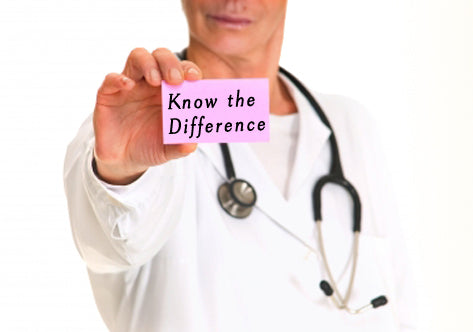Hemorrhoids are a common condition most adults face at some point in their lifetime. While they are not generally dangerous, there are some cases where foregoing medical treatment can be a major mistake when it comes to your health. Many patients try to self-diagnose hemorrhoids. They don’t want to have to go to the doctor, so they assume their symptoms are caused by hemorrhoids and use over-the-counter products and at-home remedies to get relief. The problem with that is that in some cases, hemorrhoid symptoms can be the indication of a different condition. And they could be symptoms of conditions that are much more serious than hemorrhoids.
One of those conditions is anal fissures. They sometimes present the same symptoms as hemorrhoids and go undiagnosed because patients don’t seek medical treatment. Because an anal fissure can be more serious, you should be seen by a medical professional to rule out any other medical conditions when you have symptoms of hemorrhoids. To understand why this is so important, let's look at the comparison of anal fissure vs hemorrhoid.
Anal Fissure vs Hemorrhoid
If you have symptoms of pain and discomfort in your anal area, there could be a number of conditions that may be the source of your symptoms. To properly diagnose what is the cause of your symptoms, you should definitely seek medical advice. Talk to your doctor about your symptoms. They will do an exam to determine if you are dealing with anal fissure vs hemorrhoid. While the two are common, they are also very different. And treatment depends on what type of condition you have.
What Are Anal Fissures?
Anal fissures are small tears in the anus. They can be caused by several different factors, including:
- Constipation
- Diarrhea
- Inflammatory Bowel Disease
- Obesity
- Old Age
When you become constipated, for example, you may have to deal with hard stool when you are able to have a bowel movement. The lining of the anus consists of tender, delicate skin. Conditions like constipation can cause hard stool to make a small tear in that lining. This is called an anal fissure.
Anal fissures are painful. Because they are essentially a cut, in a very delicate area, they can cause pain during bowel movements that can last for hours after you a done. Many patients report a throbbing pain sensation associated with anal fissures. They can also be accompanied by uncomfortable, overwhelming itching sensation. Some anal fissures bleed, leaving blood behind when you wipe or in your toilet bowl after a bowel movement.
What Are Hemorrhoids?
Unlike anal fissures, hemorrhoids are swollen blood vessels. The inflamed vessels become large and cause discomfort. Hemorrhoids can be internal or external. Internal hemorrhoids do not always come with symptoms, so they often go undetected. External hemorrhoids are more bothersome and can be accompanied by pain, itchiness, bleeding, and burning.
Like anal fissures, hemorrhoids can bleed when you try to pass stool through the anal opening. This can also cause pain. There are several causes for hemorrhoids. These include:
- Improper Hygiene
- Poor Diet
- Obesity
- Pregnancy
- Unusual Bowel Movements
- Constipation
- Diarrhea
- Sitting for Prolonged Periods of Time
- Dehydration
How to Determine Anal Fissure vs Hemorrhoid
The symptoms of anal fissure vs hemorrhoids are similar, so how can you differentiate between the two? If you experience pain in anal area, that is not accompanied by a lump or piles, you are most likely dealing with an anal fissure. The best way to determine which condition you have is to see a doctor. Your doctor will be able to properly examine you to give you a diagnosis and successfully treat the condition.
How Will an Anal Fissure Be Treated?
Like hemorrhoids, most doctors try conservative treatment first before anything invasive is done. At-home care and lifestyle changes can be helpful. If you know your fissure is caused by constipation or diarrhea, your doctor might treat those underlying conditions while helping you heal the anal fissure. In most cases, ointment is used to help heal the area and prevent infection.
Only when conservative treatment isn’t enough, your doctor may have to turn to surgical treatment. Surgical treatment for anal fissures works to stop the muscles from spasm. This allows the tear to heal and is an effective way to treat the fissure.
Whether you have an anal fissure or a hemorrhoid, there are treatment options available. But, because the two conditions have very similar symptoms, it is important to get checked by a medical professional to be properly diagnosed. This is the only way to effectively treat the problem and be on your way to better health without the disruption of bothersome symptoms both conditions carry.

